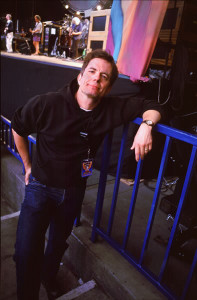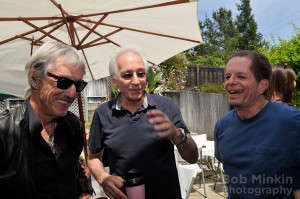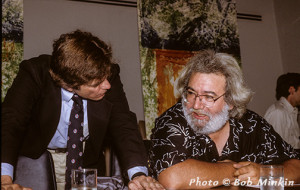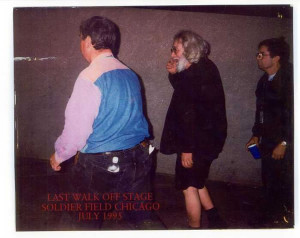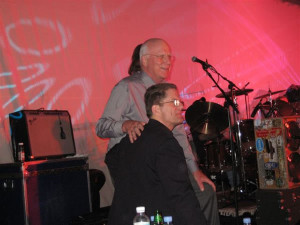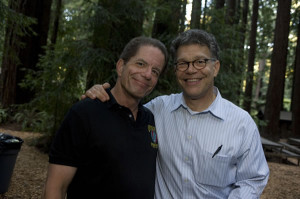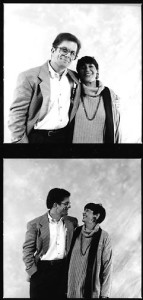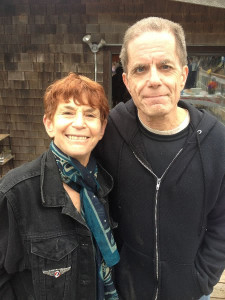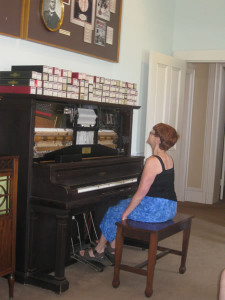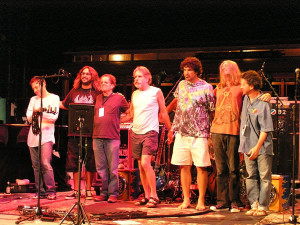For the music-business part, feel free to scroll down to the bottom!
My Godfather the Pentagon
I was born to an Army counter-intelligence operative (very good at languages and lock-picks) and a legal secretary in 1949 at Fort Meade, Md. Which means my godfather was the Pentagon. Military kids (aka Army brats) make up an interesting subset of the baby boomer generation. Until after WWII, there had never been a large Army, and never an Army that brought the families along (a few officer’s wives – think Stagecoach – but not as a regular thing).
I didn’t really start thinking about studying history in a serious way until high school and college, but on reflection, being part of this unusual slice of the population contributed to the thought pattern. We brats were a long way from the rest of our families, which had a considerable effect. And my family was even more isolated, because my father did not wear a uniform and we only visited the base nearest where we lived, but never lived on it.
White and Colored Bathrooms
We flew off to Germany the next year and spent about 3 years in Southern Germany (during which time my sister Maggie was born), then headed to the states, first in Georgia for a while and then to Los Angeles. My first memory comes from Georgia – my father and I were at a gas station and I had to go. So I find two doors, one marked “White” and one marked “Colored.” Having seen a bunch of white tile bathrooms already, I thought a colored one would be much prettier, and I headed there. The station owner was shocked and my father was tickled. It was only later that I realized the significance, of course.
Mom
We landed in Pacoima, at the northernmost end of the San Fernando Valley. The house was on Laurel Canyon Boulevard and cost $14,500 ($500 down). After a couple of years there and then a year in Baltimore so my father could attend spy school at Ft. Holabird there, we were back in Germany in 1958, where in 1959 my mother was diagnosed with stomach cancer and we returned to the states and eventually Los Angeles. The thing I’m proudest of is that, knowing she had little time – cancer treatment in 1960 was not what it is today – she went to college and studied her ass off and got on the dean’s list before the remission faded and she died in the fall of 1961. Very hard times.
“Daddy, we like hamburger”
My father was due to retire from the Army in 1963, and he started taking some theology classes at U.S.C. – he’d always had a spiritual side that he wanted to pursue, and eventually he took my sister and I aside and said that we had two choices. He could go to work with some of his friends, who had started a detective agency in Los Angeles – think “77 Sunset Strip” but for real – we’d watch such shows and he’d laugh, telling me how real surveillance took place (3 cars, two guys each, plus walking teams, if you were really serious). We were going to move to Malibu, to a place with a pool (big stuff to us at 13 and 10, respectively). Orrrrrrrr: we could move to Maine where he was going to enter theological school. We’d have his pension to live on, which meant not a whole hell of a lot ($220 a month as I recall – of course, the price of our new Ford Falcon in 1963 was $40 a month). I’m proud to say my sister and I knew what would make him happiest was the spiritual life, and somehow we saw clearly that that was far more important than the pool… the quote was, “Daddy, we like hamburger.”
So around Labor Day 1963 we arrived in Maine, having stopped by Baltimore to see family. My uncle was an official in the very integrated Steelworkers Union there and was going to be part of the March on Washington… unfortunately, we had to move on to Maine a day or two too early. Damn, big day in history missed.
The ministerial life, at least at the beginning, caused us to move almost as much as the Army and we lived in Bangor for a year before my father got a tiny church in Dedham and we moved there for a year. We lived on a 300 acre piece of land and I attended Bucksport High School, and then he got a bigger church in Dexter, which is where I ended up for the last two years of high school.
I won’t share too many details of my high school career. I was small, not socially smart so that I talked far too much and listened far too little – in short, your basic early version of a geek (without any science or math ability, alas). Mostly I spent the time saying that perhaps in college there would be people who’d like to read books and talk about them – which pretty much turned out to be so.
College Daze
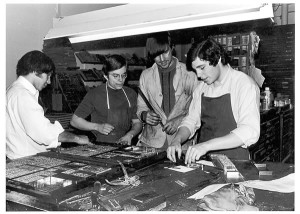
A long, long time ago…working on the Hill News, the campus paper at St. Lawrence University. I’m second from left.
It amazes me now how incredibly lucky I was with college and graduate school, because in both cases I was entirely clueless. I picked St. Lawrence U. (way, way up there in upstate New York) because I wanted – after Dexter – a traditional college with a campus newspaper and all the usual stuff – also it helped that it was a long drive from Maine and so the parents were not likely to just drop in. What I got, along with the usual, was a wonderful department of history. There were three guys in particular – Dr. Robert Carlisle (French history, not my favorite subject, but what a great teacher he was), Jon Rossie (Early American/ revolutionary war history – good guy, excellent teacher), and Bob Schwartz, who really turned my mind on to intellectual history along with Carlisle.
Truth is, I picked U. Mass because it only required one language (I’m entirely dense in that department) and …. well, because I got in. Who knew? A great department of history, most especially Stephen B. Oates, who’d already put out an outstanding biography of John Brown and would end up being my dissertation director. But also (the late) Bob Griffith, who wrote a superb book on Joe McCarthy and the Senate, Jack Tager (urban history), Bruce Laurie (labor history)… lots of cool people.
Beating the academic system
But first I had to figure some stuff out – and for a change, I actually did. Shortly after I arrived in Amherst I figured out that graduate school was not the intellectual paradise I’d expected – you know, serious conversation about abstruse subjects. No, it more closely resembled the training school for McDonald’s – you were being trained how to be a historian. Although you had to read a lot more than at McDonald’s Burger U., the ‘memorize this and regurgitate it back” was just the same). So it seemed to me at the time – I had a bad attitude about it, one that embarrasses me a lot now, because years later I got a lot of very nice treatment from those people.
But in the interval, what I realized was that I needed to take control of my life at graduate school, and one way of doing that was to choose my dissertation topic in advance. This was kind of revolutionary – or at least subversive. Ordinarily, you spent four years being stuffed with information like a goose, then you spit it out at a qualifying exam, and then you’re told what you can write a dissertation on (which remarkably turns out to be something that will be legwork for your dissertation director’s next magnum opus). In return, you get allowed into the teacher’s “guild” – you can start climbing the academic mountain.
On the other hand, if you decide to pick a topic first, then you have four years of reading that might actually connect with that topic and make some sort of sense… such was my reasoning. One night about 2 am in the lounge of the graduate dormitory I lived in (I’d spent the summer after college in France so I could pass the language exam and had to stay in a dorm – advice: generally speaking, you don’t want to hang out with the kind of people who still want to live in a dorm after college).
“Dope is Like Manure”
One night I was brainstorming ideas for a dissertation with my buddy Chris – Christopher Ian Byrnes, math genius, Dead Head, and the only guy I knew in the dorm who smoked dope. I had no $ and no dope, but Chris told me, “Hey, dope is like manure. It only does some good when it’s spread around.” Good guy.
I mentioned the Beat Generation, and Chris said, “Why don’t you do a book about Jack Kerouac? His papers are at Columbia, and you can stay with my friends in the Bronx.” Being broke, this had an impact. Coincidentally, my family moved just a few miles from Kerouac’s hometown of Lowell, Mass. I went to the library and found out that at that point (spring 1972), there weren’t any published biographies of Kerouac, so I started researching that summer.
Lucien Carr, my future father figure
My first interview was great – I met Lucien Carr, who was an editor at UPI. Lucien was, in the newspaper tradition, a hard drinker and had a temper, so the guy who helped me locate him advised me to get him for lunch. So of course Lucien said come at 6 pm – we went to some bar that was the UPI hangout and proceeded to talk – and drink – for hours. I’m proud to say that I could still read my notes the next day, twisted as I was. By the way – I did stay with those guys (John Hurley, Steve Buccieri, and Eddie D’Allessandro) in the Bronx, and they’re still some of my favorite people ever.
That fall, Chris took me to my first Dead concert (Springfield, Mass., 10/2/72), gave me my first hit, and generally re-ordered my life. By 1973 I’d decided that Kerouac and the Dead were connected, and wanted to do two books, one of bohemia in the ‘40s and ‘50s (Kerouac), and then the ‘60s and ‘70s (the Dead). Amazingly, it all worked out.
How to meet Jerry Garcia
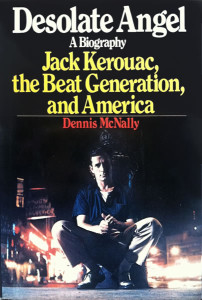 I finished Kerouac and published it in 1979 – you can see more about that on this site. I sent a copy to Jerry Garcia and another to Robert Hunter at the fan club mailing address (good old Box 1073, San Rafael) – and waited. Eventually, I convinced the folks at the San Francisco Chronicle to run an article on the ritual known as New Year’s Eve, and that came out just as the Dead started a 15 night run at the Warfield in the Fall of 1980.
I finished Kerouac and published it in 1979 – you can see more about that on this site. I sent a copy to Jerry Garcia and another to Robert Hunter at the fan club mailing address (good old Box 1073, San Rafael) – and waited. Eventually, I convinced the folks at the San Francisco Chronicle to run an article on the ritual known as New Year’s Eve, and that came out just as the Dead started a 15 night run at the Warfield in the Fall of 1980.
Those of you who are Dead Heads may recall that that run would visit New Orleans and then resume at Radio City Music Hall, ending on Halloween, with a special closed-circuit broadcast to theaters around the East Coast…since it was theoretically a celebration of the 15th anniversary of the Band (they’d kinda forgotten about it on the actual dates), they added an acoustic third set and then asked Al Franken (now U.S. Senator) and the late Tom Davis (blessed be his memory) to write skits to put in between all the sets for the broadcast. It’s what’s called “Dead Ahead.”
Originally, the script was going to include a representative Dead Head, and Eileen Law, godmother of all Dead Heads, was asked to send some to an audition – and I got in on it. The end result was chatting with Jerry, who – it turned out – had gotten my book and liked it (Kerouac was really important to him. Reading On the Road changed his life).
For once in my life, I was smart enough to keep my mouth shut and not suggest anything to him (“Sure kid, take a number.”) And two months later, in December, as I relate elsewhere here, Rock and Alan, two GD staff members, came and said that Jerry suggested that I write a history of the G.D. I allowed as how that seemed like a good idea…
“Get McNally to do it.”
So I began. By 1984, I was running out of money and looking for work, and Rock Scully had moved on and they needed a publicist – actually, what happened was that the receptionist complained because no one was responding to press calls, so Garcia just said, “Get McNally to do it, he knows that shit.” He also said, “Send him up to my place and I’ll tell him what to do.” I got there, and he said, “First, we don’t suck up to the press.” I said, OK, got that, no sucking up. Then he said, “That about covers it – here, smoke this.” Nice job training.
Dick Latvala Makes an Introduction
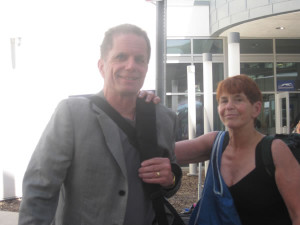
Susana and me getting ready to get on the bus in St. Louis, headed for Memphis, 2010. Part of the river trip. Photo by Madeleine Dames.
Life with the Grateful Dead was not just a job. It was also all-encompassing. Not long after I began working for the Dead, Dick Latvala, my buddy and the tape archivist for the band – thus “Dick’s Picks,” introduced me to a lady who lived just a few blocks from me in San Francisco, a photographer named Susana Millman. I had just gotten a laminate and discovered its magic powers over certain young ladies on tour…so of course I had to mess up my blooming social life by going and falling in love. Which I did. Susana and I married the next year, in the fall of 1985, with Jerry walking her down the aisle and Bill Kreutzmann as best man. A very good party. Susana came into my life accompanied by a smart, lovely daughter named Season. Picture the leaves of a calendar flipping into infinity (old movie reference)….and now it’s 2014 and Season’s married to Jono Korchin and they have two very lovely sons, Julian (9) and Elias (7). It’s great to be a grandfather. Susana’s still a photographer – www.mamarazi.com (you’ve heard of the papparazzi? She’s the mama…)
It’s not a job, it’s an adventure
Eventually, I realized that working 70 hours (it was a great but all-consuming job) a week made it impossible to be a publicist and a historian at the same time, and I put the book on the back burner, kept notes on all the good stuff, and kept on. We went to the White House and the United Nations, got a private tour of a Monet exhibit in Chicago, had a lot of fun, and dealt with some tragedy.
Jerry died in 1995, and after two years in which I tried to do my part to hold the GD world together, I resumed work on the book. Did a massive review of everything, re-interviewed lots of people, and put it out. Worked for G.D. productions until it shut down in 2004, and then went on the road with RatDog for four really good years.
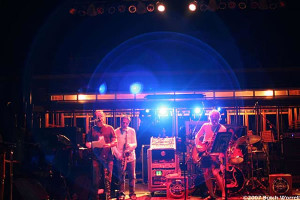
I sit in with RatDog (reading from On the Road) in Lowell, at the 50th anniversary of the book’s publication. Sweet night.
The Music Biz:
And since then, I’ve been advising people and being a publicist, same as it ever was, with an emphasis on jam bands, Americana, Indian music – and anybody whose music I want to listen to (unlike a record company publicist, I have the privilege and joy of saying no to music that doesn’t resonate with me). I’ll add that while some of the means (I started out mailing pictures to newspapers – thank god for the internet) have changed, getting people to dig your music is still a matter of building an audience one set of ears at a time – just the way the Dead did.
Some of the people I’ve worked with in the past few years include:
Achilles Wheel, Another Planet Entertainment, Arhoolie Records, ARC Corporation, Ashkenaz, Brother’s Keeper, CIIS (California Institute for Integral Studies), Concord Records, Bela Fleck-Edgar Meyer-Zakir Hussain Tours, Harmony Festival, Steve Kimock, Little Feat, Jesse McReynolds, New Riders of the Purple Sage, Sonoma Jazz+ Festival, The Subdudes, Zakir Hussain’s Masters of Percussion.
I’m still at it, and happy to consider anything you throw at me. Just go to the contact page.
